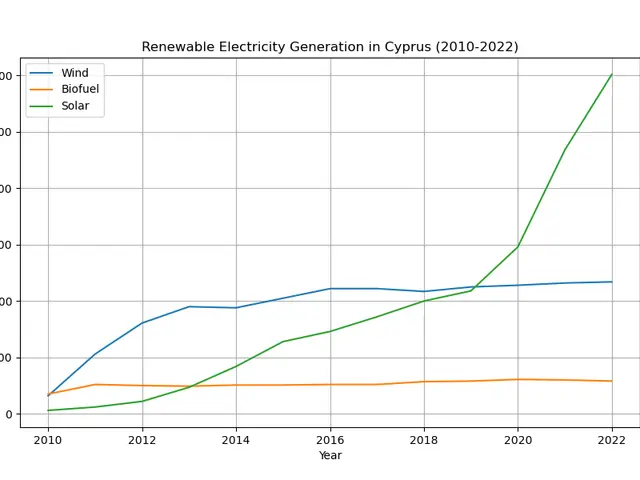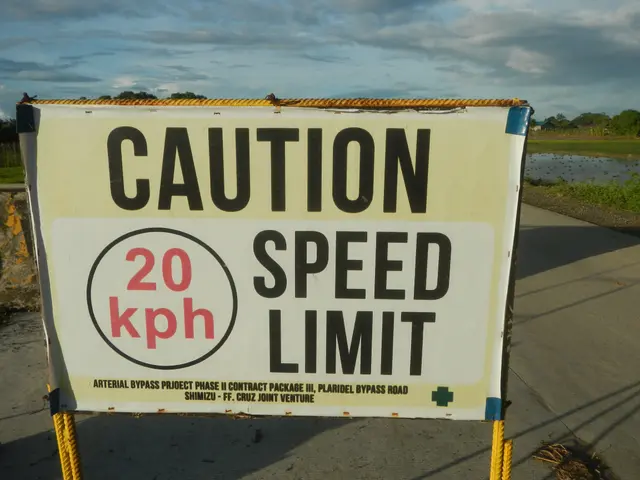East Coast Faces Potential Stormy Surf from Hurricane Erin | A new tropical disturbance emerges, potentially posing risks along the Eastern seaboard
Hurricane Erin, a high-end Category 2 storm, is currently moving northward offshore the U.S. East Coast, posing risks to coastal areas despite its offshore trajectory. The storm's large size and reach could cause dangerous conditions, especially for North Carolina's Outer Banks.
As of Tuesday morning, tropical storm-force winds extended more than 200 miles out from Hurricane Erin's center, and by Thursday, they are expected to reach over 280 miles. This means that even without landfall, the Outer Banks and other coastal locations along the Eastern Seaboard can expect dangerous swells, strong winds, and heavy rain.
A storm surge warning is in effect for the Outer Banks, signaling a risk of life-threatening coastal flooding due to rising waters pushed by hurricane-force and tropical storm-force winds. Residents and visitors in the area should prepare for hazardous coastal conditions.
The storm's path is influenced by a high-pressure system over the Atlantic steering it offshore, and a cold front expected to push the hurricane further away from the coast. Erin is forecast to become post-tropical by Saturday as it passes south of Atlantic Canada, continuing to affect the region with strong winds and rough seas possibly through the U.S. mid-Atlantic and New England coasts.
In North Carolina, Dare and Hyde counties, which encompass most of the Outer Banks, have issued local states of emergency with mandatory evacuations for Hatteras and Ocracoke islands. The tides around the Outer Banks will be at their highest levels of the month on Wednesday and Thursday, and extensive beach erosion is likely. North Carolina's Highway 12, the road connecting the islands of the Outer Banks, could be inaccessible for several days due to anticipated significant coastal flooding.
In addition to the Outer Banks, Bermuda also lies in Hurricane Erin's path of influence, with forecasters expecting the island to see very rough seas and possibly tropical storm-force winds later this week.
Residents along the East Coast should stay informed and prepared for potential hazardous coastal conditions. Tropical storm warnings remain in effect for the Turks and Caicos Islands and the southeast Bahamas. The National Hurricane Center is also monitoring two areas for possible tropical development in the same part of the Atlantic as Hurricane Erin.
In other news, rip current risks are high along much of the East Coast Tuesday and will likely persist at that level through much of the week. The next two tropical storms that develop in the Atlantic will be given the names Fernand and Gabrielle. Around 90 rip current rescues were conducted on Monday in North Carolina, and at least 75 rescues occurred in New Hanover County.
Stay safe and informed as Hurricane Erin continues to move offshore. For the latest updates, visit your local news station or the National Hurricane Center's website.
References:
- https://www.weather.gov/miami/hurricaneerin
- https://www.weather.com/news/hurricane-erin-outer-banks-north-carolina-storm-surge-warning
Read also:
- Amidst India's escalating climate crisis, transgender individuals continue to persevere
- Germany's three-month tenure under Merz's administration feels significantly extended
- Governing body allegedly persists in enjoying vacation time amidst Spain's highest danger level due to fires, claims Feijóo
- United Nations Human Rights Evaluation, Session 45: United Kingdom's Statement Regarding Mauritius' Human Rights Record








